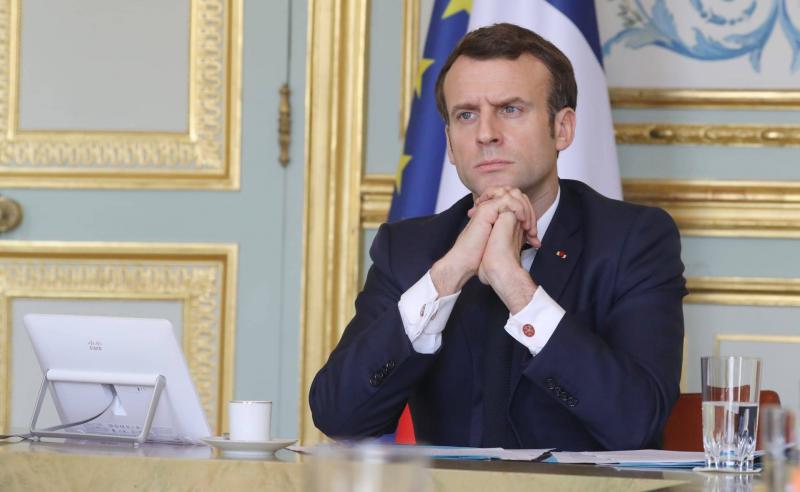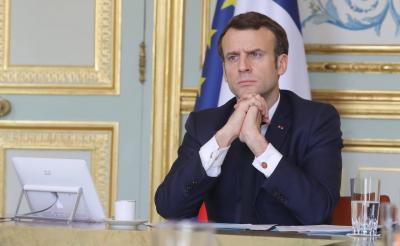Despite the escalating tensions on the southern front, indicators are emerging suggesting increased diplomatic efforts, primarily led by French diplomacy. Recently, France has initiated diplomatic and security communications between Lebanon and Israel in an attempt to reinforce the implementation of Resolution 1701 as the quickest and most effective solution to prevent Lebanon from facing a devastating war, which France has consistently warned about.
One of the indicators of these developments is that Israel, in a rare move, expressed "regret" for the killing of the Lebanese army sergeant, Abdul Karim al-Maqdad, and the injury of four other Lebanese soldiers due to shelling on a military center in the south. Israeli Defense Minister Yoav Gallant stated, "We will push Hezbollah back beyond the Litani River through an international settlement based on a UN resolution. If the international settlement fails, we will take military action to remove Hezbollah from the borders." Additionally, the Israeli newspaper Yedioth Ahronoth reported that U.S. officials are considering a possible settlement between Israel and Lebanon regarding the border. According to these officials, U.S. envoy Amos Hochstein is working to finalize an agreement to reduce the potential for escalation, and the proposed land border settlement would mirror the maritime border agreement. The newspaper noted that "the aim of the potential agreement is to permanently push Hezbollah away from the border."
In information obtained by "An-Nahar," it was revealed that a new French security delegation will arrive in Beirut in the coming days after a visit from French intelligence director Bernard Émié earlier this week. Appointments for the delegation with officials they requested to meet have already been scheduled.
In this context, An-Nahar's correspondent in Paris, Randa Takieddine, reported that despite the high tension along the Lebanese-Israeli border, the possibility of French President Emmanuel Macron visiting the French force working within UN peacekeeping forces (UNIFIL) during the Christmas period seems plausible. The French president visits French troops deployed abroad annually during Christmas, and Lebanon is among the countries he could visit, although no final decision has been made yet, and other countries are also being considered.
Regarding the current situation on the Lebanese-Israeli border, Paris holds Hezbollah responsible for the shelling from Lebanon into Israel, not Hamas. Therefore, Paris is sending messages to Hezbollah through various French channels, involving senior French officials who have visited Lebanon for this purpose. This reiterated message indicates that Hezbollah must cease its shelling towards Israel, as France considers it to be violating Resolution 1701; the party is not permitted to have heavy weapons south of the Litani River. Currently, Hezbollah possesses a large arsenal of weapons, including rockets and heavy arms, in that area.
Paris points out that Israel is currently targeting the destruction of Hamas's arsenal in Gaza and is unlikely to leave Hezbollah's arsenal in Lebanon intact as it is in southern Litani. Paris believes that if the Lebanese and Hezbollah do not realize this, a disaster threatens the country. This is the essence of all the French messages directed at the party and the Lebanese officials.
As for Macron's visit to the French force in Lebanon, it has not been confirmed yet, although the French president has previously shown a willingness to take risks as he is concerned about Lebanon's stability and security. Furthermore, Paris emphasizes that the deteriorating internal situation, including the vacancy of the presidency, the lack of a military commander, and the absence of a central bank governor, necessitates extending the military commander's term for the country's safety, which is a conviction of French diplomacy.
Yesterday, the French Foreign Ministry condemned the Israeli shelling that resulted in the death of a Lebanese soldier, with a spokesperson stating, "France expresses grave concern over the continued clashes at the border between Lebanon and Israel," calling on all parties to exercise the utmost restraint. He added, "France expresses its deep concern over the ongoing confrontations at the Lebanese border with Israel and condemns the Israeli shelling that claimed the life of a member of the Lebanese armed forces. It extends heartfelt condolences to the family. France reiterates its support for the Lebanese army, which guarantees the country's unity and stability. It reminds that Lebanon's sovereignty must be respected and that all involved parties must fully implement UN Security Council Resolution 1701." He concluded, "All parties must exercise the utmost restraint to avoid an escalation that Lebanon cannot recover from. These confrontations threaten the security of the UN Interim Force in Lebanon, and maintaining its operational capacity and security is of fundamental importance."




